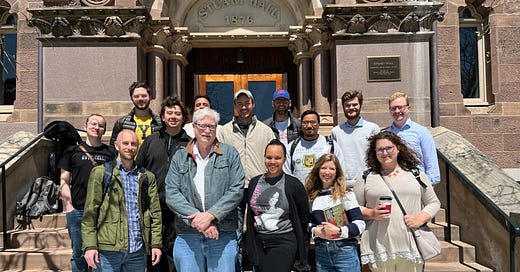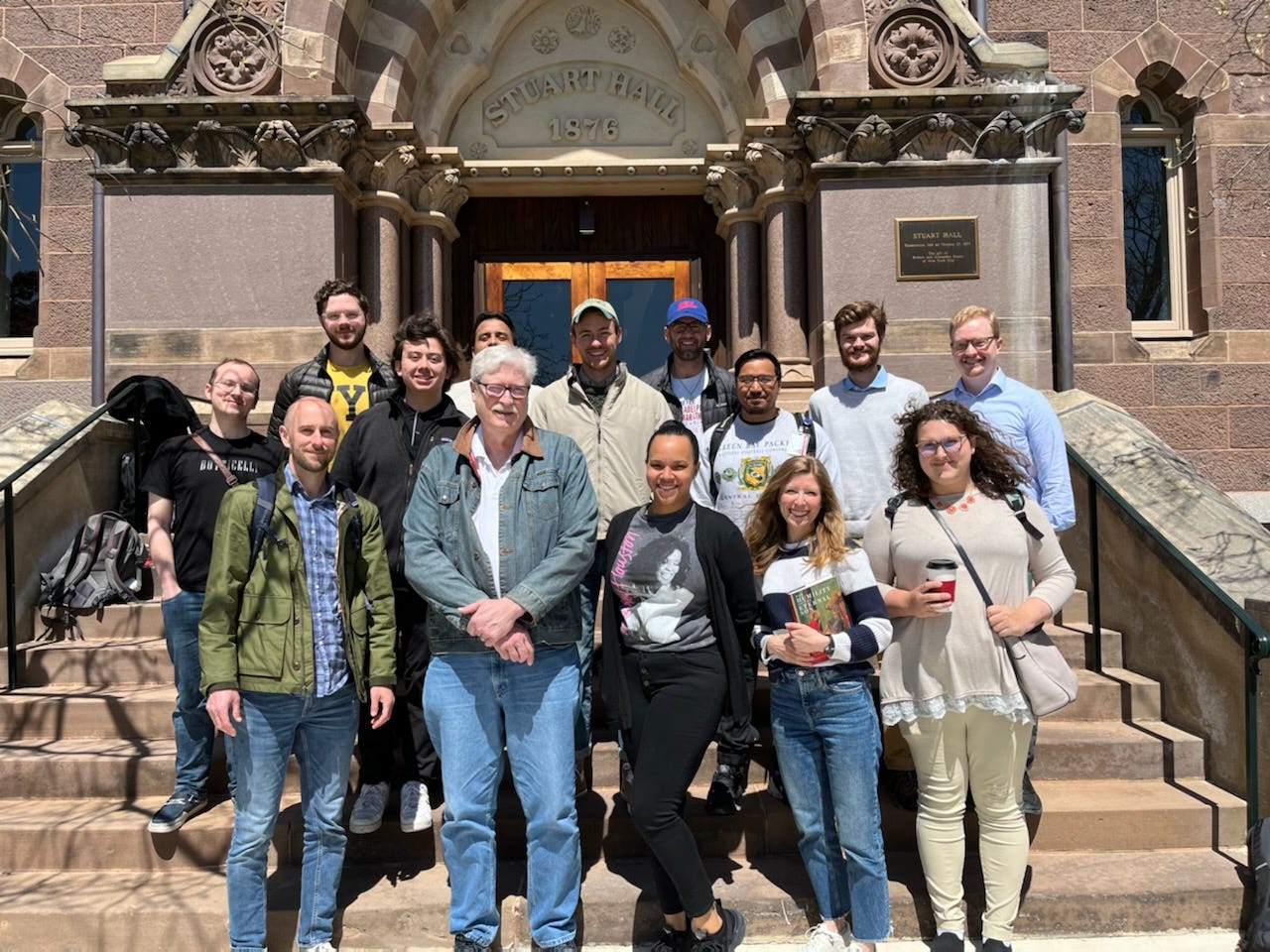the church and common life
According to Schleiermacher, central to the project of community is both a work of formation and a telos of unity.
In his Glaubenslehre, Schleiermacher writes:
“All who are living in the state of sanctification feel an inward impulse to become more and more one in their common co-operative activity and reciprocal influence, and are conscious of this as the common Spirit of the new life founded by Christ.” (Gl. §121)
What Schleiermacher is speaking of here is the ecclesial establishment of a common life in Jesus Christ. Central to this project of community is 1) a work of formation and 2) a telos of unity.
The inward impulse, for Schleiermacher, is a product of one’s God-consciousness— the recognition of one’s absolute dependence upon God in the causal God-world relationship. (The perfection of God-consciousness is found in Jesus Christ who so clearly understood God’s action in the world that he was able to imagine and act in the world free of self-interest). The church, then, is comprised of those in whom this God-consciousness has been awakened and thus feel that “inward impulse” to enter into this shared community. This is the work of formation.
The teleological scope of Schleiermacher’s proposed common life is unity in Christ produced by and maintained through the Holy Spirit. That is, the Holy Spirit is that “common Spirit” of the Christian Church that arises out of the union of divine causality with the historical phenomenon of the church. As we exist together in true communion, we experience the Spirit. This is the collision of the universal with the particular, the particular with the finite, God with humanity. (Schleiermacher’s trinitarianism is a conversation for another day…however, I believe there is certainly benefit to be found in his understanding of commonality and community).
Where does this leave us?
While there are certainly places I cannot go theologically with Schleiermacher, what I find incredible value in is his emphasis on formation and unity. Indeed, if we are to understand our life together, we must do so through the power of the Spirit as we lean into that here-and-not-yet reality of unity with Christ.
Schleiermacher reminds us that the church is deeply human—as beautiful as it is complicated. He also emphasizes that the church, even in all its particularity, ought to cultivate a sense of belonging where one may genuinely say “these are my people.”
—
I am thankful for my time at Princeton Seminary and the opportunity to study Schleiermacher this semester with Dr. Bruce McCormack. In our collective endeavor to examine one theological giant by way of another exceptional theologian, we fostered a community where three days a week I could say with confidence “these undoubtedly are my people.”
Reading:
“Christian Empathy Imagines Neighbors as Ourselves” by Mary W. McCampbell in Christianity Today
Robert Brandom, “Actions, Norms, and Practical Reasoning” in Philosophical Perspectives 12 — Language, Mind, and Ontology (1998).
Watching:
Kevin Hector, “Freedom, Necessity, and the Love of God: Schleiermacher on Creation” presented at the Henry Center (Youtube).
The Woman in the House Across the Street from the Girl in the Window (Netflix)
Listening:
Jonathan Tran | Yellow Christianity — The Center for Asian American Christianity Podcast





